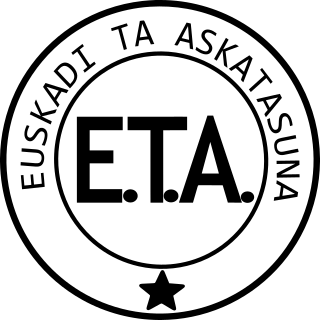
ETA, an acronym for Euskadi Ta Askatasuna, was an armed Basque nationalist and far-left separatist organization in the Basque Country between 1959 and 2018, with its goal being independence for the region. The group was founded in 1959 during the era of Francoist Spain, and later evolved from a pacifist group promoting traditional Basque culture to a violent paramilitary group. It engaged in a campaign of bombings, assassinations, and kidnappings throughout Spain and especially the Southern Basque Country against the regime, which was highly centralised and hostile to the expression of non-Castilian minority identities. ETA was the main group within the Basque National Liberation Movement and was the most important Basque participant in the Basque conflict.

Basque music refers to the music made in the Basque Country, reflecting traits related to its society/tradition, and devised by people from that territory. While traditionally more closely associated to rural based and Basque language music, the growing diversification of its production during the last decades has tipped the scale in favour of a broad definition.
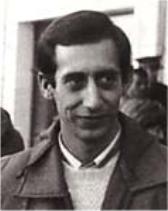
José Miguel Beñaran Ordeñana was a Basque militant and a key figure in the political evolution of the Basque separatist organization Euskadi ta Askatasuna (ETA). Often known by his nom de guerreArgala (Slim), he took part in the so called Operation Ogre, which consisted in the assassination of Luis Carrero Blanco, Spain's Prime Minister, in 1973. Five years later, he was in turn assassinated by a car bomb in Anglet, French Basque Country, by a group directed by far right members inside the Spanish Navy. This group reportedly received assistance from people such as former OAS member Jean Pierre Cherid, former Triple A Argentine member José María Boccardo and Italian neofascist Mario Ricci, member of Avanguardia Nazionale.
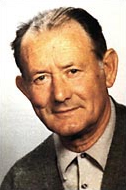
Felix Likiniano Heriz (1909-1982), also known as Liki, was a Basque anarchist that fought in the Spanish Civil War, French Resistance and with the Spanish Maquis, before becoming involved with Euskadi Ta Askatasuna (ETA) during the 1960s.

The Basque conflict, also known as the Spain–ETA conflict, was an armed and political conflict from 1959 to 2011 between Spain and the Basque National Liberation Movement, a group of social and political Basque organizations which sought independence from Spain and France. The movement was built around the separatist organization ETA, which had launched a campaign of attacks against Spanish administrations since 1959. ETA had been proscribed as a terrorist organization by the Spanish, British, French and American authorities at different moments. The conflict took place mostly on Spanish soil, although to a smaller degree it was also present in France, which was primarily used as a safe haven by ETA members. It was the longest running violent conflict in modern Western Europe. It has been sometimes referred to as "Europe's longest war".
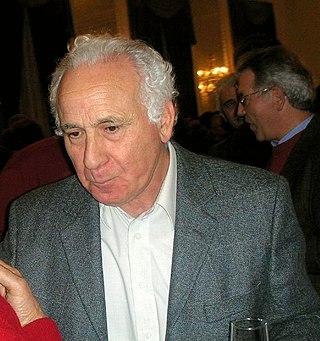
Joxe Azurmendi Otaegi is a Basque writer, philosopher, essayist and poet. He has published numerous articles and books on ethics, politics, the philosophy of language, technique, Basque literature and philosophy in general.

Lourdes Iriondo Mujika was a Basque singer and writer from Spain known for helping to revitalize the Basque Language. She was born in San Sebastián on 27 March 1937 and lived in Urnieta, Spain. She is remembered as one of the most popular members of a singing group and cultural movement that renewed Basque songwriting.

María Teresa Pagazaurtundúa Ruiz, better known as Maite Pagazaurtundúa or Maite Pagaza, is a Spanish politician, activist and writer. She is currently a Member of the European Parliament, and spokesperson of Unión Progreso y Democracia in the European Parliament.

María Dolores González Katarain, also known as Yoyes, was an iconic woman leader of Basque terrorist group ETA, who became a symbol because of the tragic circumstances of her life.

Elena Odriozola, born in Donostia – San Sebastián is an illustrator of books for children and young adults. For her lasting contribution to children's literature she received the Golden Apple of the Biennial of Illustration Bratislava (2015) for her work illustrating in 2013 Frankenstein or The Modern Prometheus.

Women in ETA in Francoist Spain were few in numbers, and portrayed as dangerous by the media. Euskadi Ta Askatasuna (ETA) grew out of a Basque nationalist movement with roots that pre-dated the Second Spanish Republic. When Franco seized power, the new regime cracked down on Basque nationalism, imprisoned and killed many activists and made traditional women's activism difficult to continue. Women found themselves being investigated by the new regime. Basque nationalists began to stockpile weaponry following the end of World War II. ETA was created in 1952 by students in Bilbao, creating a fissure in the Basque nationalist community by the mid-1950s. Their attitude towards women was patriarchal and informed by their conservative Roman Catholicism. There would be few women in the movement in this period.

Genoveva Forest Tarrat was a Spanish far-left activist, writer and political prisoner. Born into an anarchist family in Barcelona, she studied medicine in Madrid. During the 1970s, she supported the Basque separatist group ETA in their resistance to the government of dictator Francisco Franco. From 1974 to 1977, she was imprisoned for alleged complicity in the Cafetería Rolando bombing (1974) which killed 13 people in Madrid. After Spain's transition to democracy, she served a term as a senator from 1992 until 1993. The wife of the Spanish writer Alfonso Sastre, she died in May 2007.

Arantza Díaz de Ilarraza Sánchez is a professor of informatics at the University of the Basque Country. In 1981, she began her work as a lecturer at the Faculty of Informatics of Donostia. As a specialist in language and computer technology, she has held positions of responsibility in Basque technology institutions.
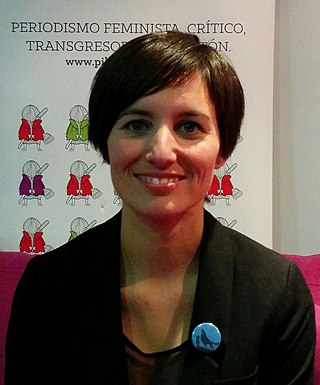
June Fernández Casete is a Spanish journalist. She is a co-founder and the director of the feminist Pikara Magazine.
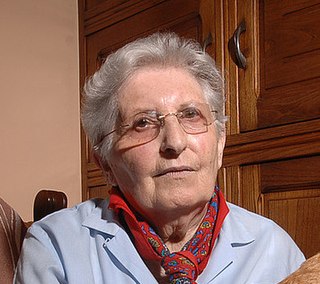
Marijane Minaberri or Marie-Jeanne Minaberry was a Basque author and radio broadcaster. She began writing articles for herself at the age of 20 and then worked as Banca's town hall municipal secretary for a decade. Minaberri then taught 10 and 11-year-old students at Bayonne's Saint Louis de Gonzague church before beginning a broadcasting career on Radio Côte Basque, Gure Irratia and Lapurdi Irratia. She wrote a series of poems and children's stories in both Basque in French and was a member of the Euskaltzaindia. Minaberri is considered a pioneer in Basque radio broadcasting and researchers consider two of her works the beginning of learning of Basque children's literature.
Txomin Peillen Karrikaburu was a French writer, linguist, and biologist.

Zuriñe Hidalgo is a Spanish singer, musician and TV presenter.

Maixux Rekalde Urdanpilleta was a Spanish pacifist and Basque supporter. She served as President of Elkarri and Lokarri.

Gurutzi Arregi Azpeitia was a Spanish ethnographer. She was the director of the Ethnographic Research Group Etniker-Bizkaia, which systematically collects ethnographic materials of the Basque Country. She was a co-founder and also worked in the Labayru Fundazioa. Arregi coordinated the Ethnographic Atlas of the Basque Country.

Imanol Larzabal Goñi, known as Imanol, was a Basque Spanish singer and composer, and a champion of Basque language and culture. He went into exile from the Basque Country twice: first during the Franco dictatorship, and again in the last years of his life due to conflict with Euskadi Ta Askatasuna (ETA), a violent Basque separatist organization.



















